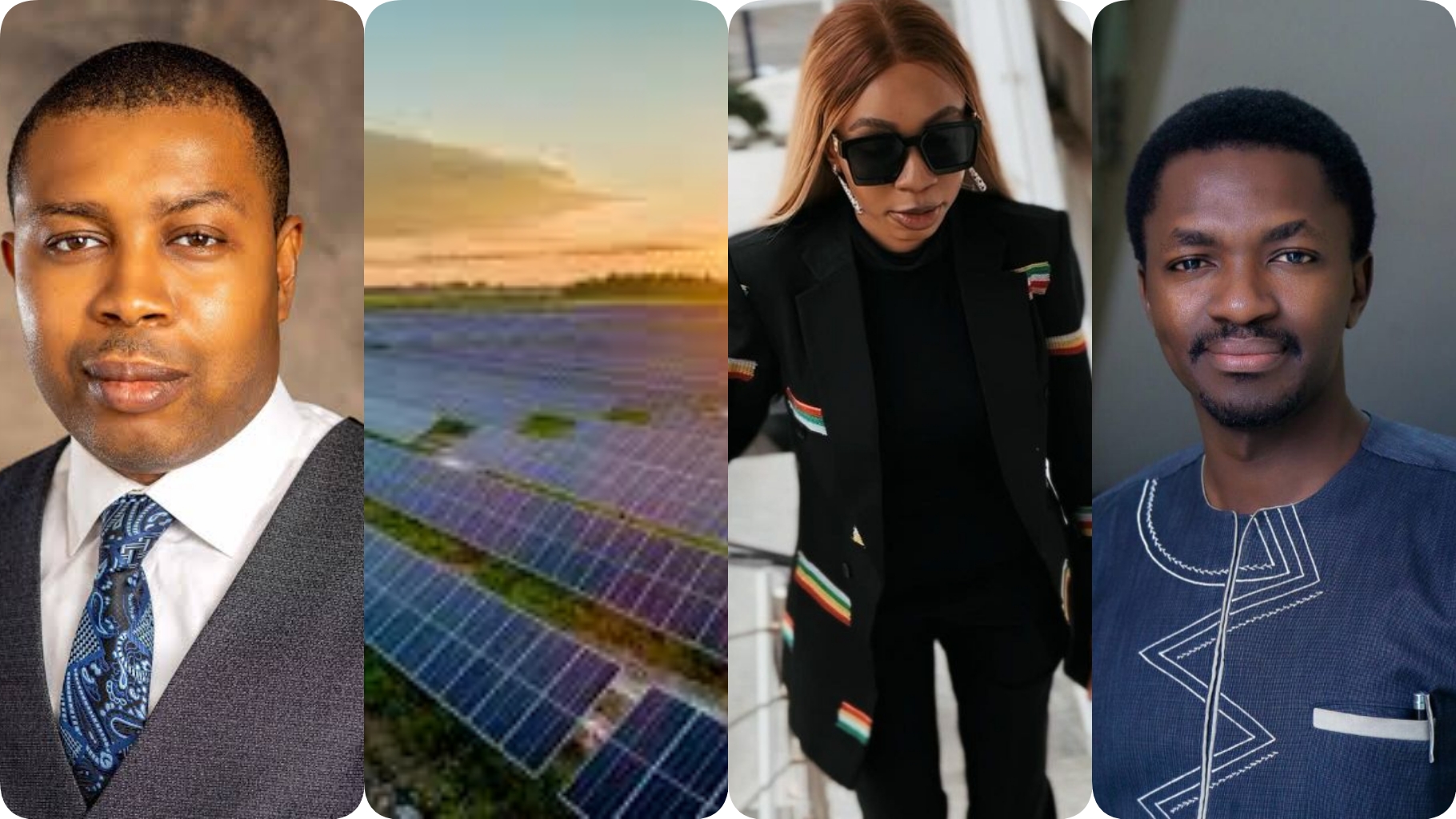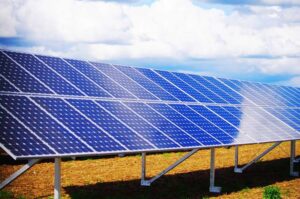Articles
How Climate Change Has Spurred Renewable Energy Businesses In Nigeria

Nigeria’s ability to limit the impact of climate change has been questioned over the years, due to its overdependence on fossil fuels, use of generators due to poor electricity and a lack of technological know-how. About 60 million Nigerians depend on generators to provide electricity, so total eradication of generators will only be achievable if Nigeria’s power supply is improved.
Transitioning to renewable energy, banning of generators and reducing the number of trucks using diesel can be a great move in ensuring Nigeria achieve net-zero emissions.
Human activities has greatly affected climate change. In turn, these activities has caused negative impact in society, e.g. Drought, Flooding and other health complications.

President of Nigeria, Muhammadu Buhari declared last year that Net-zero carbon emissions will be reduced by 2060 at COP26.
He also signed the Climate Change Act 2021 which will provide mainstream climate change actions.
According to the Guardian, in 2020, Nigeria produced 126.9 million tonnes of Carbon Dioxide.
Nigeria is one of the highest waste producers. Yearly, Nigeria produces 32 million tons of solid waste. However, the country’s recycling industry is still growing compared to industries in foreign countries.
Renewable Energy is of utmost importance to the fight against climate change.
How electricity is being produced has a great effect on our climate. Power plants and burning of fossil fuels contributes to 40% of air pollution. Renewable energy reduces carbon pollution.
One of the most effective ways to reduce the negative impact of climate change and air pollution affecting the health of individuals is to replace fossil fuels with green power.
Fossil fuels include natural gas, coal, bitumen, etc. Which affects our livelihood.
The goal is to shift completely to clean energy. Projections reveal that by 2050, 50% of the world’s energy will come from renewable energy.
Most Nigerians do not have access to unlimited electricity. Fossil fuel generators generates 15GW which causes harm to the health of millions of individuals. Reports claim that Nigeria consumes about $9 billion annually in fuel. It is estimated that renewable energy would save the country about $4.4 billion annually.
Founder of Salpha Energy, Sandra Chukwudozie is of the opinion that energy must be clean, reliable, affordable and sustainable.

Speaking at an interview with Vanguard, Sandra said;
I learnt that energy needs to be clean, modern, affordable, reliable and sustainable; to reach those people who do not have access to it and take away energy poverty. That mindset changed me completely and made me want to transition into clean energy.
The unfortunate part is that Nigeria is an oil exporter that has suffered so much from the impact of climate change. Climate change is real and we are seeing evidences of this in a various ways. Farmers cannot till the ground, herders and farmers are in conflict zones.
Shell-funded impact investment company, All On invested $1m in Salpha Energy Nigeria to boost the company’s solar home systems distribution business.
The investment is said to be used to increase Salpha’s inventory and product range, sales channels expansion, customer service infrastructure in states across Nigeria including in the Niger Delta.
Another renewable energy company making impact is Arnergy Solar, this is one of the leading renewable energy companies in Nigeria. It provides sustainable energy services for small, medium and large businesses.

Arnergy recieved a $9 million fund at Series A round led by Breakthrough Energy Ventures with participation from All On Energy, Norfund and ElectriFi.
The funds where invested to fuel its commercial growth, fresh business models and partnership opportunities.
Femi Adeyemo and Kunle Odebunmi founded Arnegy In 2014. The company provides solar power systems to businesses and homes. The company focuses on businesses in the hospitality, financial, education, agriculture and healthcare sectors. Over the past six years, Arnergy has installed more than 2MW of electricity for over 2,000 clients.
In an interview, Adeyemo was asked about the potential for Renewable Energy in Nigeria, he said:
Nigeria receives 4-7 KWh per sq metre per day from the sun, with the highest yields to be found in the north. A significant part of the country is powered by hydro during the rainy season, while in the north there are good prospects for wind energy. In some areas of the country, such as the rice mills of Ebonyi, biomass could be used as a feedstock. Overall, solar power has the greatest potential in Nigeria since most parts of the country have enough irradiation to generate significant amounts of electricity.
Over the next four years the government plans to build 400,000 homes. If solar panels were deployed on these, they would provide an installed off-grid power capacity of 800 MW, generating 3200 MWh of electricity daily
Green Village Electricity (GVE) Projects Limited is one of the most innovative renewable energy solutions provider in West Africa, registered with the Corporate Affairs Commission of Nigeria.

Clean Energy Mini-Grids provide clean, reliable, affordable and sustainable energy access to unserved & under-served regions of Nigeria
Founder of GVE Projects Ltd is
Ifeanyi Orajaka, a graduate of electrical/electronic engineering from the Federal University of Technology, Owerri.
Orajaka is providing solutions to the power supply issues in Nigeria. It all began in his 3rd year in the university where he embarked on a renewable energy project as his undergraduate thesis.
His company, Green Village Electricity today provides electricity to remote settlements that are connected to national grid reaching over 2000 houses and becoming an employer of labour with over 400 employees.
In 2012, Orajaka’s novel idea on renewable energy won him a UNDP competition, providing him with grant which enabled him supply energy solutions to remote villages in Nigeria as a youth corps member in 2012.
In Nigeria, there is also Auxano Solar. Founder of Auxano Solar, Chuks Umezulora has over 13 years of experience in the design of Solar PV and installation across Nigeria and Africa.

Auxano Solar is one of biggest solar assembly plants in Nigeria, the company produces solar panels and has partnered with All On, an impact investors as well as the Bank of Industry to increase solar panels production in NIgeria.
Speaking about what prompted him to co-found the renewable energy company, despite his educational background in Chemical Engineering, Chuks said:
“It is this love for machines that led to an interest in how it could be deplored to solve Nigeria’s energy challenges.”
Auxano Solar Nig Ltd was registered in 2014 specifically for Solar Business. Auxano Energy deals in procurement, designs, sales, installation and maintenance of solar and inverter systems.
Credit to Interview. Ng, Business Day, OxfordBusinessgroup, Vanguard.

